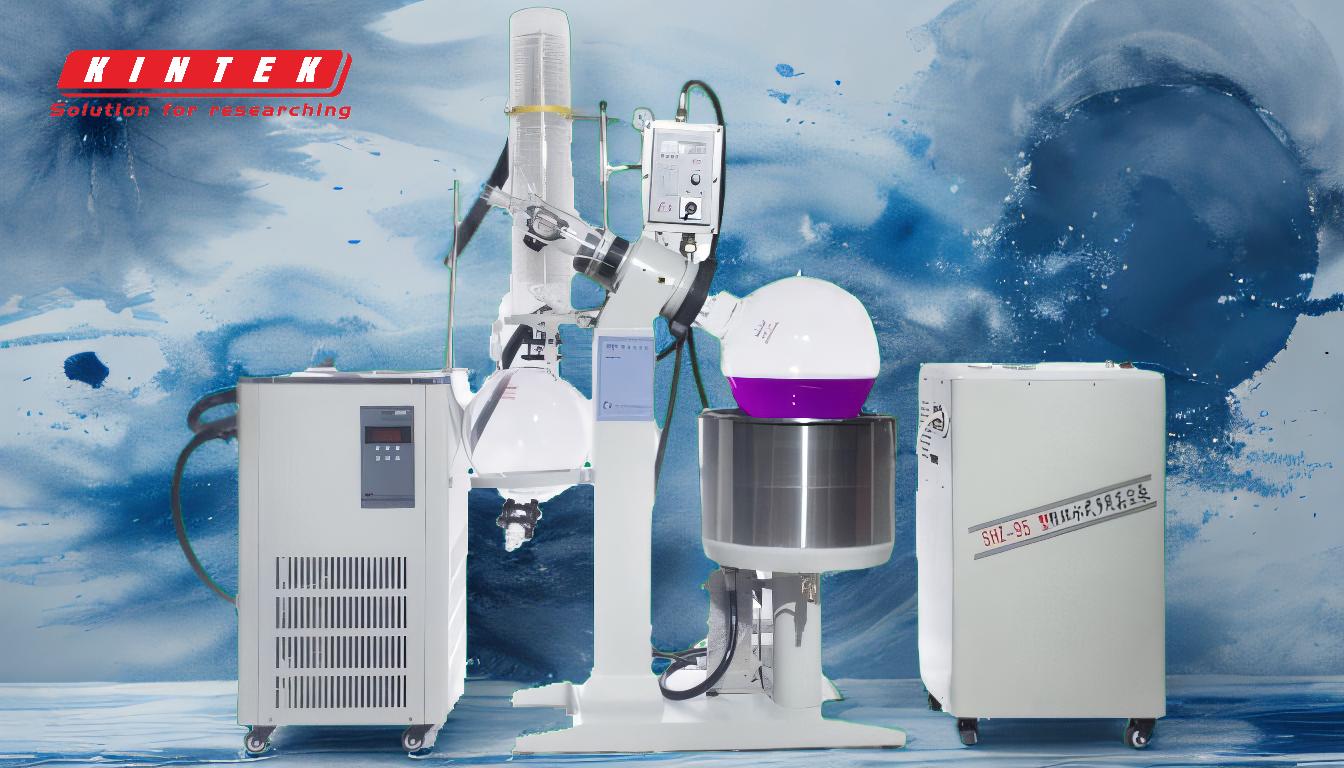Distillation is a widely used separation technique in chemistry and industry, and it can be performed under different conditions depending on the requirements. Normal distillation (also called atmospheric distillation) and vacuum distillation are two common methods, each with distinct characteristics and applications. The primary difference lies in the operating pressure: normal distillation occurs at atmospheric pressure, while vacuum distillation is performed under reduced pressure. This reduction in pressure lowers the boiling points of the liquids being distilled, enabling the separation of heat-sensitive compounds and reducing energy consumption. Below, the key differences and advantages of each method are explained in detail.
Key Points Explained:

-
Operating Pressure:
- Normal Distillation: Operates at atmospheric pressure (1 atm or 760 mmHg). This is the standard condition for most distillation processes.
- Vacuum Distillation: Operates at pressures below atmospheric pressure, often achieved using a vacuum pump. The reduced pressure lowers the boiling points of the liquids.
-
Boiling Points:
- Normal Distillation: Liquids boil at their standard boiling points, which are defined at 1 atm. For example, water boils at 100°C under normal conditions.
- Vacuum Distillation: Liquids boil at lower temperatures due to the reduced pressure. For instance, water can boil at temperatures as low as 40°C under a strong vacuum.
-
Energy Efficiency:
- Normal Distillation: Requires higher energy input to achieve the boiling points of liquids, especially for high-boiling-point compounds.
- Vacuum Distillation: More energy-efficient because the reduced pressure allows liquids to boil at lower temperatures, reducing the energy needed for heating.
-
Applications:
- Normal Distillation: Suitable for separating compounds with moderate boiling points and those that are not heat-sensitive. Commonly used in industries like petroleum refining and alcohol production.
- Vacuum Distillation: Ideal for separating heat-sensitive compounds, high-boiling-point liquids, or those that decompose at higher temperatures. Widely used in the pharmaceutical, chemical, and food industries.
-
Equipment and Setup:
- Normal Distillation: Requires standard distillation equipment, including a heat source, distillation flask, condenser, and collection vessel.
- Vacuum Distillation: Requires additional equipment, such as a vacuum pump and a sealed system to maintain reduced pressure. The setup is more complex and costly.
-
Separation Efficiency:
- Normal Distillation: Effective for separating liquids with significantly different boiling points. However, it may not be suitable for compounds with close boiling points or those prone to thermal degradation.
- Vacuum Distillation: Enhances separation efficiency for compounds with close boiling points and minimizes thermal degradation, making it suitable for purifying sensitive materials.
-
Examples of Use:
- Normal Distillation: Used in the production of alcoholic beverages, separation of crude oil into fractions, and purification of solvents.
- Vacuum Distillation: Used in the purification of essential oils, separation of heat-sensitive pharmaceuticals, and refining of high-boiling-point petroleum fractions.
-
Advantages of Vacuum Distillation:
- Lower operating temperatures reduce the risk of thermal decomposition.
- Energy savings due to reduced heating requirements.
- Ability to separate high-boiling-point compounds that would otherwise require excessive energy or decompose under normal conditions.
-
Limitations of Vacuum Distillation:
- Higher equipment costs due to the need for vacuum pumps and sealed systems.
- Increased complexity in operation and maintenance.
- Potential for foaming or bumping of liquids under reduced pressure, which can affect separation efficiency.
In summary, the choice between normal distillation and vacuum distillation depends on the specific requirements of the separation process, including the nature of the compounds, their boiling points, and their sensitivity to heat. Vacuum distillation offers significant advantages for heat-sensitive and high-boiling-point materials, while normal distillation remains a simpler and more cost-effective option for less demanding applications.
Summary Table:
| Aspect | Normal Distillation | Vacuum Distillation |
|---|---|---|
| Operating Pressure | Atmospheric pressure (1 atm or 760 mmHg) | Reduced pressure (below 1 atm) |
| Boiling Points | Standard boiling points (e.g., water at 100°C) | Lower boiling points (e.g., water at 40°C) |
| Energy Efficiency | Higher energy input required | More energy-efficient due to lower temperatures |
| Applications | Petroleum refining, alcohol production | Pharmaceuticals, essential oils, food industry |
| Equipment | Standard setup (flask, condenser, etc.) | Requires vacuum pump and sealed system |
| Separation Efficiency | Suitable for compounds with distinct boiling points | Better for close boiling points and heat-sensitive materials |
Need help choosing the right distillation method for your needs? Contact our experts today!











